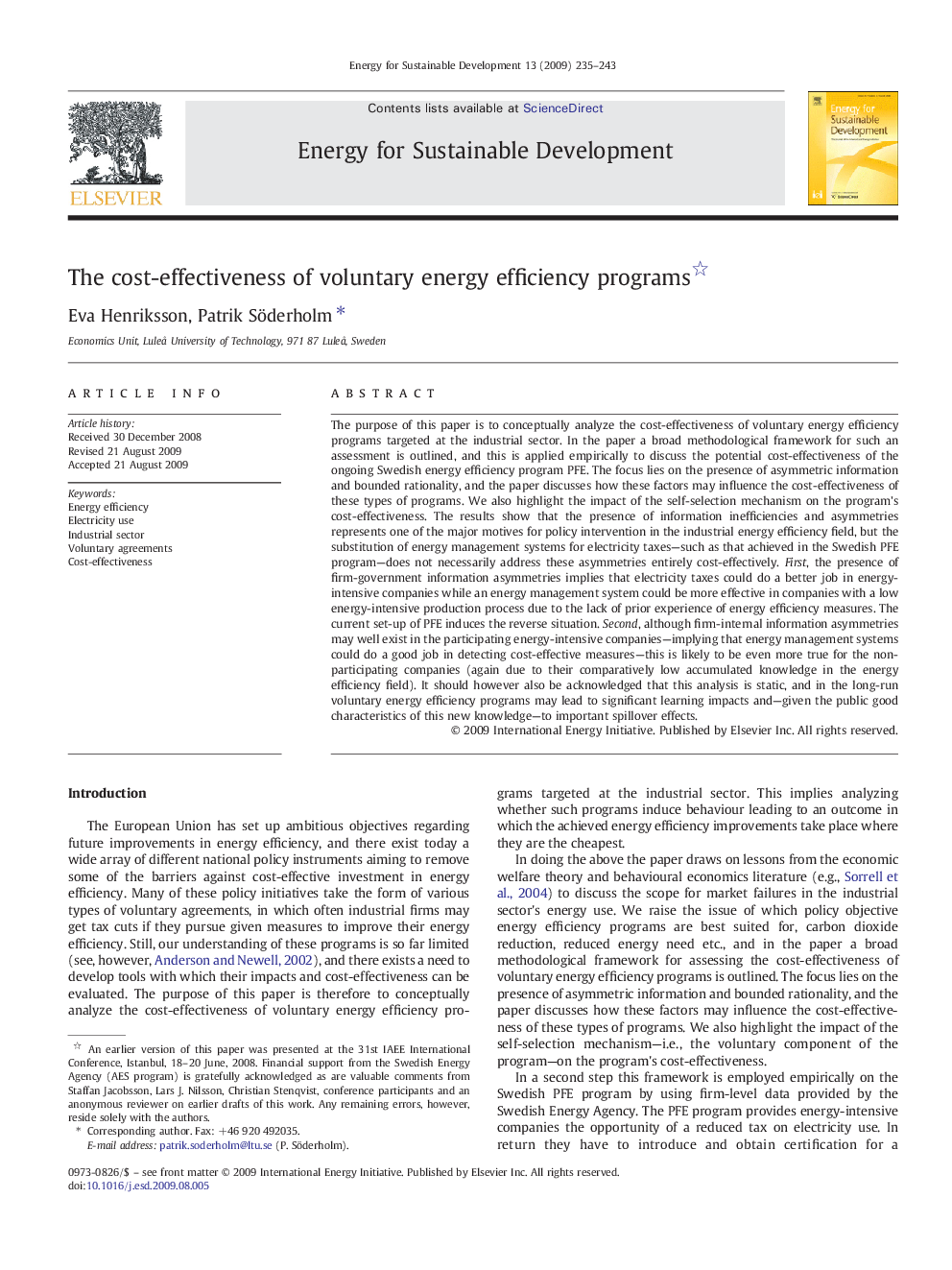| کد مقاله | کد نشریه | سال انتشار | مقاله انگلیسی | نسخه تمام متن |
|---|---|---|---|---|
| 1047246 | 945199 | 2009 | 9 صفحه PDF | دانلود رایگان |

The purpose of this paper is to conceptually analyze the cost-effectiveness of voluntary energy efficiency programs targeted at the industrial sector. In the paper a broad methodological framework for such an assessment is outlined, and this is applied empirically to discuss the potential cost-effectiveness of the ongoing Swedish energy efficiency program PFE. The focus lies on the presence of asymmetric information and bounded rationality, and the paper discusses how these factors may influence the cost-effectiveness of these types of programs. We also highlight the impact of the self-selection mechanism on the program's cost-effectiveness. The results show that the presence of information inefficiencies and asymmetries represents one of the major motives for policy intervention in the industrial energy efficiency field, but the substitution of energy management systems for electricity taxes—such as that achieved in the Swedish PFE program—does not necessarily address these asymmetries entirely cost-effectively. First, the presence of firm-government information asymmetries implies that electricity taxes could do a better job in energy-intensive companies while an energy management system could be more effective in companies with a low energy-intensive production process due to the lack of prior experience of energy efficiency measures. The current set-up of PFE induces the reverse situation. Second, although firm-internal information asymmetries may well exist in the participating energy-intensive companies—implying that energy management systems could do a good job in detecting cost-effective measures—this is likely to be even more true for the non-participating companies (again due to their comparatively low accumulated knowledge in the energy efficiency field). It should however also be acknowledged that this analysis is static, and in the long-run voluntary energy efficiency programs may lead to significant learning impacts and—given the public good characteristics of this new knowledge—to important spillover effects.
Journal: Energy for Sustainable Development - Volume 13, Issue 4, December 2009, Pages 235–243